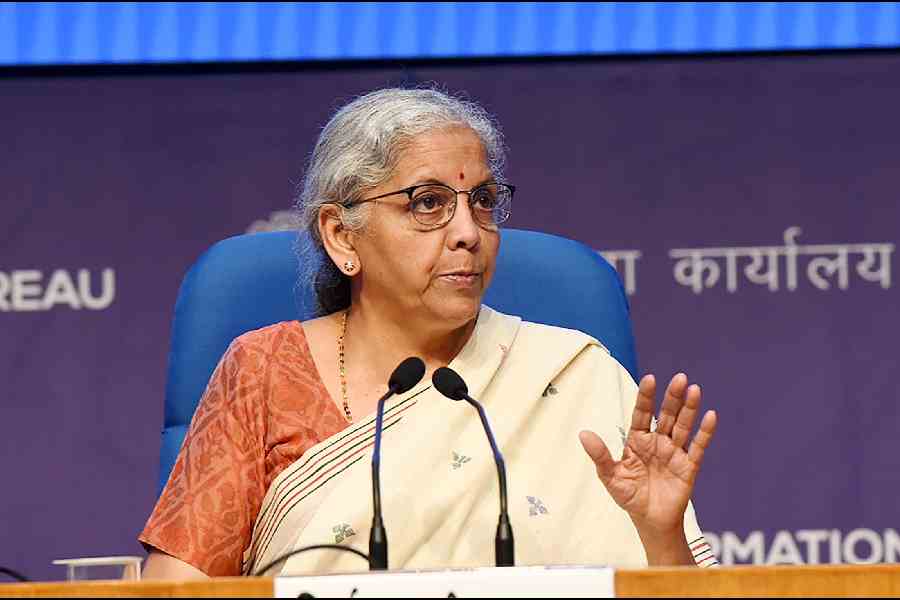The Union finance minister’s declaration that the Centre would “encourage” the vaccination of girls against cervical cancer has stirred speculation among doctors whether she was only voicing a longstanding policy or hinting that the government would shortly offer the vaccination free.
Finance minister Nirmala Sitharaman, in a segment of her interim budget speech on Thursday citing initiatives in health, said: “Our government will encourage vaccination for girls in the age group of nine to 14 years for prevention of cervical cancer.”
The statement comes against the backdrop of expectations in the medical community since 2017 that the Centre would introduce vaccines against the human papilloma virus (HPV) that protect against cervical cancer into the free immunisation programme.
Medical experts have long advocated HPV vaccines to prevent cervical cancer triggered by genetic and cellular changes in the uterine cervix induced by the sexually transmitted HPV.
Cervical cancer is the second-commonest cancer in India. Doctors estimate that over 120,000 women are diagnosed with cervical cancer in the country annually, and 75,000 die of the disease every year.
Foreign-made HPV vaccines have been available in India in the private healthcare market since their approval by the country’s drug regulatory agency in 2008. But, doctors say, they cost over Rs 2,000 per dose and remain available mainly to households that can afford them.
The National Technical Advisory Group on Immunisation (NTAGI) — an expert panel that guides the Centre on vaccines — had in 2017 recommended the “phased introduction” of HPV vaccines in the government’s immunisation programme. Until mid-2022, only Punjab and Sikkim had introduced the vaccine.
“The reality was that the high cost of foreign-made vaccines even at subsidised costs have kept them out of the government’s immunisation programme,” said Neerja Bhatla, professor of gynaecology at AIIMS, New Delhi.
The NTAGI recommendation and the promise of a domestic HPV vaccine from the Pune-based Serum Institute of India, expected to cost between Rs 200 and Rs 300, had bolstered expectations of the vaccine’s imminent entry into the government’s free immunisation programme, another federation office-bearer said.
“It is important that all girls — rich and poor — receive HPV vaccination,” said Apurba Kumar Dutta, an obstetrician-gynaecologist and chair of the federation’s advisory committee on sexually transmitted infections. “We hope that the government will back its encouragement of vaccination with funding to make it available as part of routine immunisation.”
A public health expert, who requested to remain anonymous, said it was unclear what the finance minister exactly meant in saying that the government would “encourage” the vaccination. “This is an interim budget. Maybe it is a hint of what the government intends to announce later this year.”
But on January 13, the health ministry said it had taken no decision yet on the rollout of HPV vaccination. It said it was “monitoring the incidence of cervical cancer cases in the country and is in regular touch with states and government departments regarding this”. Doctors tracking decisions on the HPV say the Centre has earlier too encouraged HPV vaccination.











